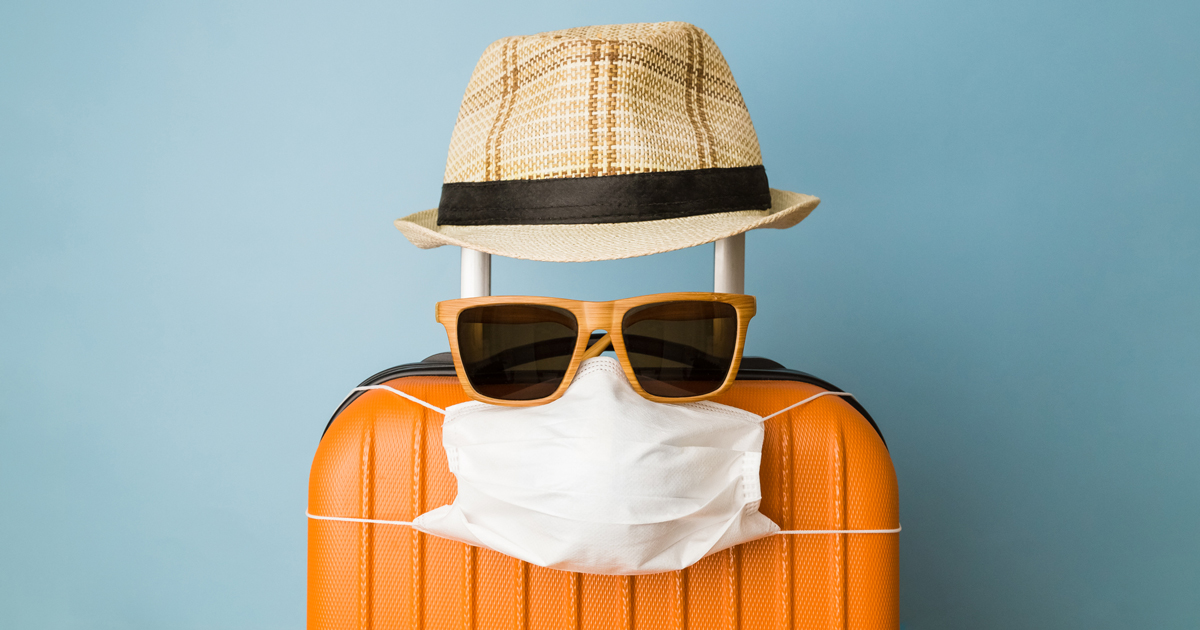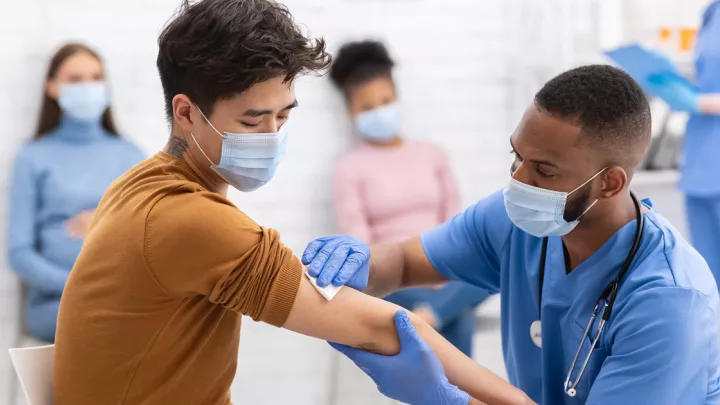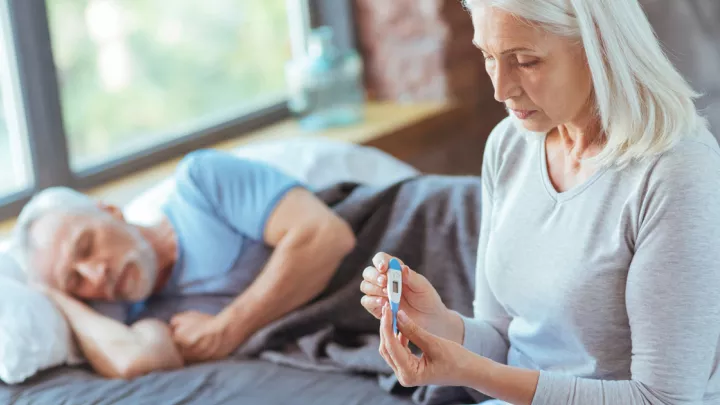7 travel tips for when you're fully vaccinated

Itching for a trip? The Centers for Disease Control and Prevention just updated travel guidelines for people who are fully vaccinated. If it's been two or more weeks since your final dose of the COVID-19 vaccine, travel is much safer.
If you're still waiting your turn for a COVID-19 vaccine, stay put for now. COVID-19 variants are circulating both domestically and internationally. "Travel increases the risk of getting and spreading COVID-19," says infectious diseases expert Richard Starlin, MD. "We need to get more people vaccinated, and control of these variants before everyone can travel."
If you're fully vaccinated and planning a trip, get timely advice from Dr. Starlin.
1. Mask up, wash your hands and avoid crowds.
Fully vaccinated people should still wear a mask on public transportation, including buses, trains and planes, wash their hands and avoid crowds. The federal government still requires masks in airports and bus stations, too. "The biggest risk with travel is when you have less control of your surroundings," says Dr. Starlin. "For instance, distancing is sometimes impossible in check-in lines, security points, airport terminals and meals. You might try researching times when airports are less busy."
2. Research your destination: testing and quarantine requirements.
Some domestic and international locations require a negative COVID-19 test or a period of quarantine before you can be out in public. Determine these requirements before you leave, or you may be denied entry.
"Many places use antigen testing," says Dr. Starlin. "The key is to remember that rapid antigen testing will be less sensitive and specific in asymptomatic people – thus there's a higher risk of false positives and false negatives."
3. Research your destination: COVID-19 levels.
Some places have much higher rates of COVID-19 than others. Check before you leave to see how high COVID-19 levels are in other states and other countries. "Remember that outside of the United States, testing levels may be lower. So numbers can be deceiving," says Dr. Starlin.
Why is this important? You may still get COVID-19 even if you're fully vaccinated – the vaccines are not 100% effective in preventing mild disease. (The vaccines are very effective at preventing hospitalization and death from COVID-19, however.)
4. Research your destination: other immunizations.
Visit our Travel Clinic to ensure you have up-to-date vaccinations. The clinic doesn't offer COVID-19 vaccines at this time, but we provide other immunizations or preventive medications required for safe international travel. You should visit the Travel Clinic at least four weeks before an international trip since some vaccines must be given in series. We'll provide you with advice specific to your destination.
5. If you leave the U.S., you must test negative before returning.
Even fully vaccinated people must test negative for COVID-19 before flying into the United States. It can be a rapid antigen test or a PCR test.
This requirement applies to all air passengers, 2 years of age or older, including U.S. citizens and legal permanent residents.
6. After returning home, self-monitor for symptoms.
Domestic travelers who are fully vaccinated do not need a COVID-19 test after returning home. Unless you develop COVID-19 symptoms, you don't need to self-quarantine or isolate after returning home.
After you get home from international travel, it's recommended you get a COVID-19 test three to five days later. It can be an antigen or PCR test. Also, self-monitor for COVID-19 symptoms. If your test is positive or you develop symptoms, isolate yourself for 10 days. Fully vaccinated international travelers don't need to self-quarantine in the U.S. after returning home.
7. Weigh the risks of travel with unvaccinated kids.
Until vaccinations are authorized for children, they should avoid travel. "Kids can get COVID-19 and spread it to others," says Dr. Starlin. "Unvaccinated children remain at risk during travel. Household transmission is known to occur even to people who have been fully vaccinated.






